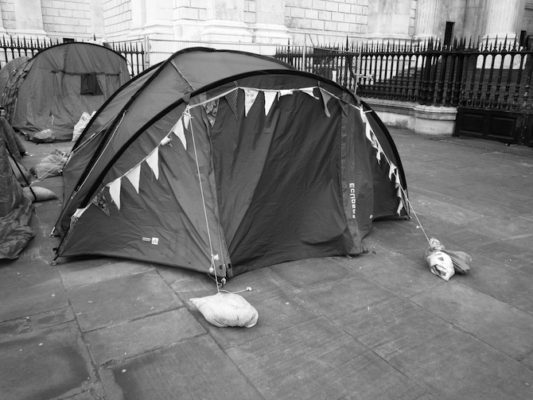Search
To search for an exact match, type the word or phrase you want in quotation marks.
A*DESK has been offering since 2002 contents about criticism and contemporary art. A*DESK has become consolidated thanks to all those who have believed in the project, all those who have followed us, debating, participating and collaborating. Many people have collaborated with A*DESK, and continue to do so. Their efforts, knowledge and belief in the project are what make it grow internationally. At A*DESK we have also generated work for over one hundred professionals in culture, from small collaborations with reviews and classes, to more prolonged and intense collaborations.
At A*DESK we believe in the need for free and universal access to culture and knowledge. We want to carry on being independent, remaining open to more ideas and opinions. If you believe in A*DESK, we need your backing to be able to continue. You can now participate in the project by supporting it. You can choose how much you want to contribute to the project.
You can decide how much you want to bring to the project.

Maria Hlavajova and Daniel Baker are the co-editors of We Roma: A Critical Reader in Contemporary Art and with it they have coined a term, a concept, a form of naming: Roma. The concept arises out of the emergence of a cross over between art and political activism on the occasion of the Project Call the Witness in the Roma Pavilion during the Venice Biennale in 2011, recuperated in a volume published by Basis voor actuele Kunst. The title is an endeavour to explore the knowledge of the Roma and their contributions to new questions for art, philosophy, activism and daily life.
Baker and Hlavajova themselves, one as an artist and researcher of the Roma culture and the other as an arts coordinator, develop a series of notes that indicate the need to reconfigure the map of relations between the centre and the periphery, through an aphorism: We Roma, that bears with it a declaration of principles. The title alludes to two classics that share the same title: We Refugees, by Hannah Arendt and Giorgio Agamben. One of which is a reflection within the Holocaust on the political nature of those who seek refuge and the other a reflection on the bio-political aspects of this search that goes beyond national frontiers.
We Roma is an actualization: what we associated until not so long ago with the Second and Third Worlds, as well as with the unknown, distant, hidden, Eastern Europe, is now, since the crisis, an active network of contingencies and economic challenges, for survival, life and the search for a future that transcends the model of centre/periphery. “We see existent hegemonies collapsing and social and economic injustice spreading from the historically marginalized to the “99%”, in both a symbolic and realistic sense, (…) Is this a place from which we can construct a creative state of shared alterity and, in so doing, invoke alternative common futures?”
Daniel Baker proposes a Roma Model to talk about the world, “a way of life that places an emphasis on all the types of individual creativities that (Irit) Rogoff talks of, highlighting the point of view from the outside, from where the machinations of power and authority can be left defenceless and in this way (…) perhaps generate a place from where to defy these dominant forces”. The Roma question is expanded in contributions by authors such as Salman Rushdie and Zigmunt Bauman, and also by Albert Atkin, the artists Demian Le Bas and Demaine Le Bas (one of Roma origin and the other a Outsider Artist) and the Berlin gallerist Bonaventure Soh Bejeng Ndikung.
Salman Rushdie, for his part, unfolds a story in which he identifies how the journey – of languages, subjects, knowledge – is a process that in itself brings with it a social stigma that marks his own biography, becoming the object of his apology for the nomad: “If planes didn’t exist, I wouldn’t exist”. Ethel Brooks retrieves Hannah Arendt, talking about the camp as the “centre” of the history of the Roma people and the avant-garde, of the relation between the camp and camping as forms of constructing places of enunciation: “The Roma camp – and its coherent dismantling, systematically in the form of evictions and expulsions – calls for the dominant narratives of the nation-state and the city to be questioned. It lays bare the task that these narratives exercise in creating and maintaining the limits of belonging and citizenship (…) The Roma are refugees par excellence, we are the other cosmopolitans, we are the front line”.
From what the anthology, valiant and discreet in the presentation that it represents, one can grasp a common endeavour; the concentration camp as an unknown place, with no name; to talk with and not in place of the Roma, from all the places that conform this margin in constant movement that is impossible to apprehend. We Roma is the fifth volume of the BAK Critical Reader Series.

Teobaldo Lagos Preller (Puerto Montt, 1978) is a curator, author and researcher. He holds a PhD in history and theory of contemporary art from the UB, a Master of Arts in Interdisciplinary Latin American Studies from the Freie Universität Berlin and a degree in social communication (Intertextual Semiotics) from the UAM-X in Mexico City. As a curator, during 2022-23 he collaborates with the artist Stine Marie Jacobsen in the implementation of Law Shifters, a conceptual work and collective creation of draft laws with the female and LGBTQIA+ community at the Museo de la Memoria y los Derechos Humanos in Santiago de Xile. During 2021 she co-curated “Museum of Democracy” at nGbK Berlin. His area of research is art and the public sphere, with a focus on immaterial transformation processes, things and public space. She has published in several magazines in the Americas and Europe. He is based in Berlin since 2008.
"A desk is a dangerous place from which to watch the world" (John Le Carré)